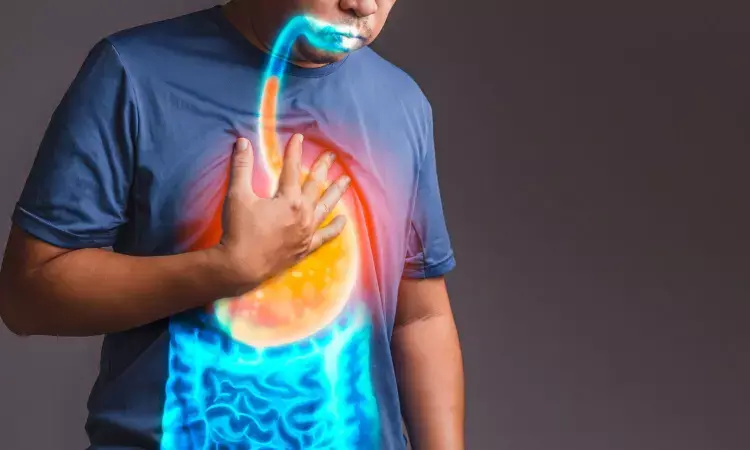- Home
- Medical news & Guidelines
- Anesthesiology
- Cardiology and CTVS
- Critical Care
- Dentistry
- Dermatology
- Diabetes and Endocrinology
- ENT
- Gastroenterology
- Medicine
- Nephrology
- Neurology
- Obstretics-Gynaecology
- Oncology
- Ophthalmology
- Orthopaedics
- Pediatrics-Neonatology
- Psychiatry
- Pulmonology
- Radiology
- Surgery
- Urology
- Laboratory Medicine
- Diet
- Nursing
- Paramedical
- Physiotherapy
- Health news
- Fact Check
- Bone Health Fact Check
- Brain Health Fact Check
- Cancer Related Fact Check
- Child Care Fact Check
- Dental and oral health fact check
- Diabetes and metabolic health fact check
- Diet and Nutrition Fact Check
- Eye and ENT Care Fact Check
- Fitness fact check
- Gut health fact check
- Heart health fact check
- Kidney health fact check
- Medical education fact check
- Men's health fact check
- Respiratory fact check
- Skin and hair care fact check
- Vaccine and Immunization fact check
- Women's health fact check
- AYUSH
- State News
- Andaman and Nicobar Islands
- Andhra Pradesh
- Arunachal Pradesh
- Assam
- Bihar
- Chandigarh
- Chattisgarh
- Dadra and Nagar Haveli
- Daman and Diu
- Delhi
- Goa
- Gujarat
- Haryana
- Himachal Pradesh
- Jammu & Kashmir
- Jharkhand
- Karnataka
- Kerala
- Ladakh
- Lakshadweep
- Madhya Pradesh
- Maharashtra
- Manipur
- Meghalaya
- Mizoram
- Nagaland
- Odisha
- Puducherry
- Punjab
- Rajasthan
- Sikkim
- Tamil Nadu
- Telangana
- Tripura
- Uttar Pradesh
- Uttrakhand
- West Bengal
- Medical Education
- Industry
Gastroesophageal reflux disease may increase risk of atrial fibrillation, suggests study

A recent research unveiled a significant association between gastroesophageal reflux disease (GERD) and an increased risk of developing atrial fibrillation (AF). This observational study published in the recent issue of Frontiers in Cardiovascular Medicine suggests that GERD could be a contributing factor to AF.
Atrial fibrillation affects approximately 2% to 3% of the global population. The individuals with AF are at a higher risk of heart failure and stroke and may experience symptoms such as fatigue, dyspnea, dizziness and heart palpitations. AF imposes significant health and economic burdens on society by contributing to substantial medical expenses and diminished quality of life.
To explore this potential link, Lei Wang and team employed a two-sample Mendelian randomization (MR) approach which assessed the causal impact of one condition on another by using genetic variants as instrumental variables. The study utilized data from two large genome-wide association studies (GWAS). The first GWAS included a total of 6,02,604 participants and examined the genetic variants associated with GERD. The second GWAS, involving over 1,030,836 participants which focused on genetic variations linked to AF.
The analysis utilized 76 single nucleotide polymorphisms (SNPs) as markers to investigate the relationship between genetically predicted GERD and AF incidence. The MR analysis revealed a significant correlation between GERD and AF.
The inverse-variance weighted method was employed to evaluate effect sizes and additional statistical techniques such as MR-Egger, simple mode, weighted mode, MR Pleiotropy Residual Sum, outlier and weighted median were used for sensitivity analysis. This model showed that genetically predicted GERD was associated with a higher incidence of AF, with an odds ratio (OR) of 1.165 (95% CI 1.102–1.231; P = 7.637 × 10−8). Also, the MR-Egger method indicated no evidence of gene pleiotropy by suggesting that the observed association was not prompted by the confounding genetic factors (intercept = 0.003, P = 0.581). The reliability and robustness of these findings were confirmed through various MR methods in the sensitivity analysis.
The findings of this research suggest a potential causal link between GERD and an increased risk of AF. If GERD is indeed a contributing factor to AF, early treatment of GERD might reduce the risk of developing AF. Further research and elaborate clinical trials are required to fully establish this causal significance.
Reference:
Wang, L., & Lu, Y. W. (2024). Gastroesophageal reflux disease may causally associate with the increased atrial fibrillation risk: evidence from two-sample Mendelian randomization analyses. In Frontiers in Cardiovascular Medicine (Vol. 11). Frontiers Media SA. https://doi.org/10.3389/fcvm.2024.1393383
Neuroscience Masters graduate
Jacinthlyn Sylvia, a Neuroscience Master's graduate from Chennai has worked extensively in deciphering the neurobiology of cognition and motor control in aging. She also has spread-out exposure to Neurosurgery from her Bachelor’s. She is currently involved in active Neuro-Oncology research. She is an upcoming neuroscientist with a fiery passion for writing. Her news cover at Medical Dialogues feature recent discoveries and updates from the healthcare and biomedical research fields. She can be reached at editorial@medicaldialogues.in
Dr Kamal Kant Kohli-MBBS, DTCD- a chest specialist with more than 30 years of practice and a flair for writing clinical articles, Dr Kamal Kant Kohli joined Medical Dialogues as a Chief Editor of Medical News. Besides writing articles, as an editor, he proofreads and verifies all the medical content published on Medical Dialogues including those coming from journals, studies,medical conferences,guidelines etc. Email: drkohli@medicaldialogues.in. Contact no. 011-43720751


